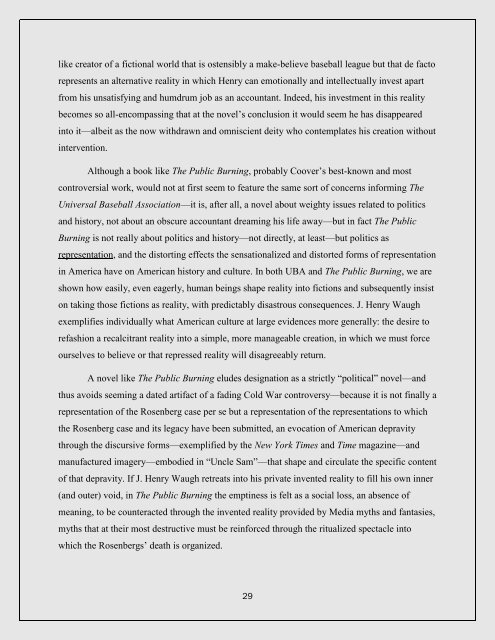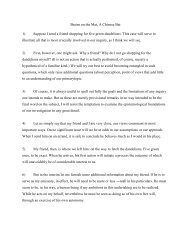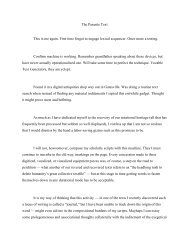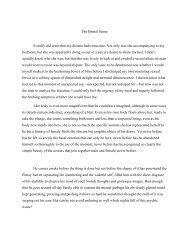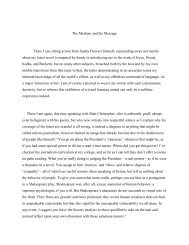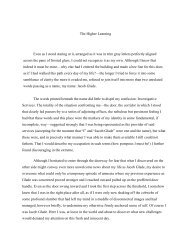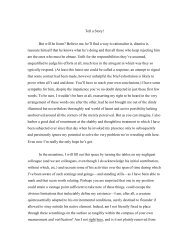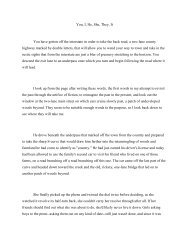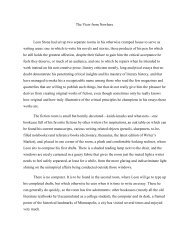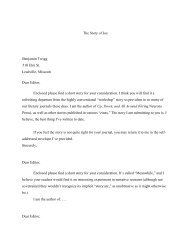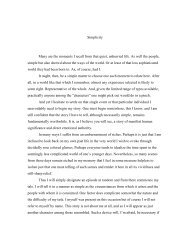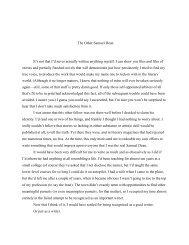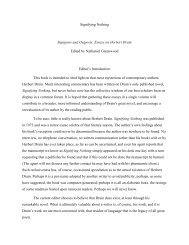APF
You also want an ePaper? Increase the reach of your titles
YUMPU automatically turns print PDFs into web optimized ePapers that Google loves.
like creator of a fictional world that is ostensibly a make-believe baseball league but that de facto<br />
represents an alternative reality in which Henry can emotionally and intellectually invest apart<br />
from his unsatisfying and humdrum job as an accountant. Indeed, his investment in this reality<br />
becomes so all-encompassing that at the novel’s conclusion it would seem he has disappeared<br />
into it—albeit as the now withdrawn and omniscient deity who contemplates his creation without<br />
intervention.<br />
Although a book like The Public Burning, probably Coover’s best-known and most<br />
controversial work, would not at first seem to feature the same sort of concerns informing The<br />
Universal Baseball Association—it is, after all, a novel about weighty issues related to politics<br />
and history, not about an obscure accountant dreaming his life away—but in fact The Public<br />
Burning is not really about politics and history—not directly, at least—but politics as<br />
representation, and the distorting effects the sensationalized and distorted forms of representation<br />
in America have on American history and culture. In both UBA and The Public Burning, we are<br />
shown how easily, even eagerly, human beings shape reality into fictions and subsequently insist<br />
on taking those fictions as reality, with predictably disastrous consequences. J. Henry Waugh<br />
exemplifies individually what American culture at large evidences more generally: the desire to<br />
refashion a recalcitrant reality into a simple, more manageable creation, in which we must force<br />
ourselves to believe or that repressed reality will disagreeably return.<br />
A novel like The Public Burning eludes designation as a strictly “political” novel—and<br />
thus avoids seeming a dated artifact of a fading Cold War controversy—because it is not finally a<br />
representation of the Rosenberg case per se but a representation of the representations to which<br />
the Rosenberg case and its legacy have been submitted, an evocation of American depravity<br />
through the discursive forms—exemplified by the New York Times and Time magazine—and<br />
manufactured imagery—embodied in “Uncle Sam”—that shape and circulate the specific content<br />
of that depravity. If J. Henry Waugh retreats into his private invented reality to fill his own inner<br />
(and outer) void, in The Public Burning the emptiness is felt as a social loss, an absence of<br />
meaning, to be counteracted through the invented reality provided by Media myths and fantasies,<br />
myths that at their most destructive must be reinforced through the ritualized spectacle into<br />
which the Rosenbergs’ death is organized.<br />
29


